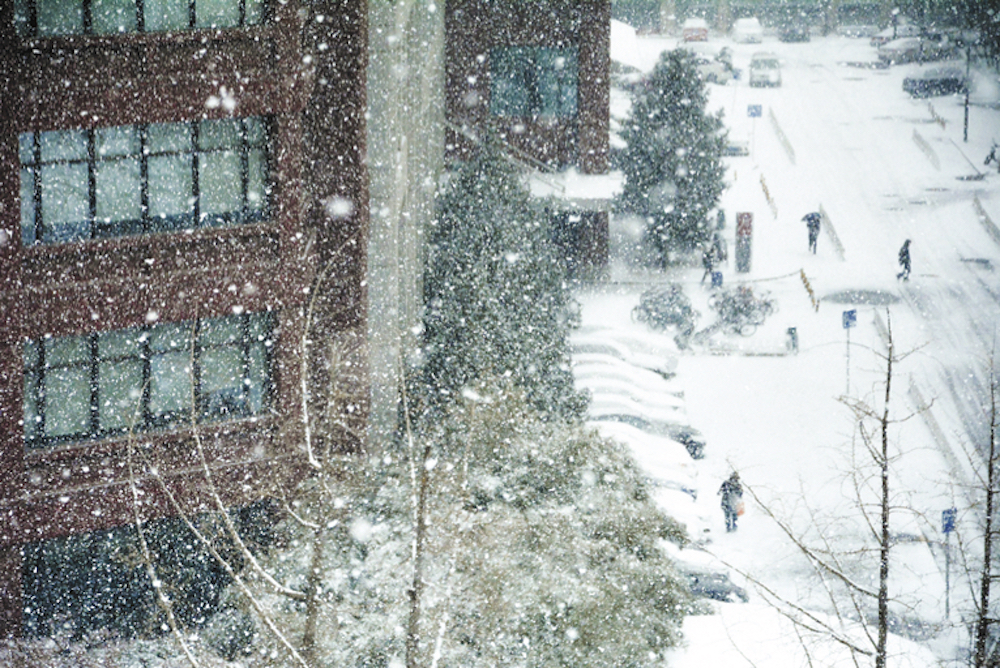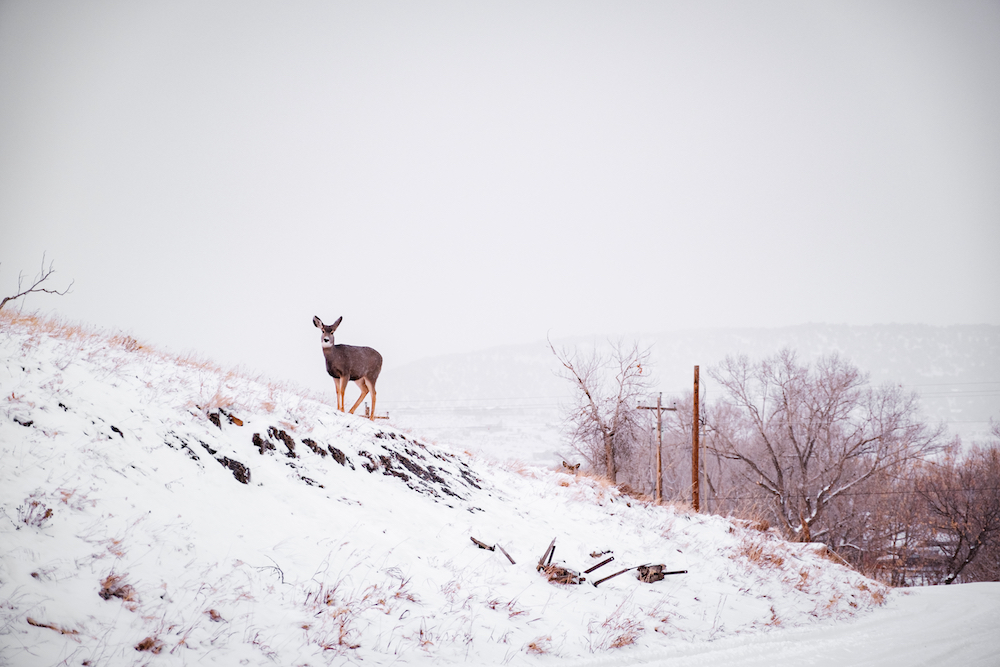
(Unsplash/Xu Haojie)
I watch from my window
snowflakes
falling, teaching, informing;
a day’s recessional
against
the ordinariness of time.
Snow, you muse, you.
I am reminded
how to love again.
—B.G. Kelley
I was looking out the window at this beast of a snowstorm when my eyes caught a small, older woman, bent over and shuffling down the street. She was wearing ragged clothes and seemed lost. A neighbor hurried out her front door and escorted the woman into her home like she was a royal guest. She then provided the woman with hot meals, dry clothing, and shelter for several days and nights. This time there was room at the inn.
Snowstorms reveal the human condition and measure the worth of our souls. Whether they are whoppers that paralyze cities for days or squalls that knock out power for a while and cause inconveniences, snowstorms have a way of making us reflect on just how fragile and vulnerable our lives are. When we see them with the eye of our soul, snowstorms can be absolutely transforming.
I remember the working-class man who lived alone on the street where I grew up. As he got into his 60s, his knees became arthritic, and he wasn’t as mobile as he used to be. The neighbors on our block knew he would be dependent in a crippling snowstorm. And when a big one approached Philadelphia one day, all the neighbors agreed that on each day someone would check up on him, shop for staples, pick up his medicine, or make sure his cat was fed. We became one village, at least for this moment in time.
Snowstorms have the power to cripple us, or colonize us and connect us to larger unions beyond ourselves — family, friends, neighbors, strangers, animals. We help extract cars rooted in a snow rut, we shovel driveways and walkways for those who can’t, we pick up groceries and medicine for seniors and shut-ins, we give shelter to cats. Life slows down, and we are able to see others’ needs as our own. Indeed, sometimes the suffering and challenges caused by snowstorms create a new creation — a new sense of community, indeed a new sense of ourselves.
And when the storm subsides and the snow presents a lustrous landscape, the beauty left by a blizzard can transcend our prosaic day-to-day living by suspending not only thoughts of making the mortgage payment, or making the tuition payment, or simply making do, but also renegotiating our sometimes insular behavior: our abruptness and impatience with others; our obsession with completing tasks; our preoccupation with getting ahead.
Advertisement
Snow can engender a palpable inner peace; it can reawaken an innocence in us that gets lost — or at least misplaced — when we become adults, reason alone to embrace this uninvited guest, and recognize its lyric beauty, its unity, its spirit. Oh, snow, you muse, you!
Last winter, the snow scene in my backyard froze me at the sliding-door window in my kitchen. I was smitten by its supernal beauty on the hill and on the trees in the backyard. Suddenly, a deer appeared, staring at me from no more than 10 yards away. It was standing, like a statue of a saint, on the hill, alive and majestic — as pure as the snow. It was a moment that forged a freshness in me that I never got from a new car, or a new TV, or a new smartphone.
At that moment I wondered why I sometimes consider snow a formidable interruption of my busyness or to a perfectly planned day. I was reminded of Robert Frost’s poem "Dust of Snow":
The dust of snow
From a hemlock tree
Has given my heart
A change of mood
And saved some part
Of a day I had rued

(Unsplash/Owen Lystrup)
Even when the snow melted away, I kept a mental photo of that deer staring at me in the snowy landscape of our backyard. That’s the message of snow: It is as pure as prayer. It can reveal something of the dazzling purity of God.
Storms remind me of a passage from Matthew when they begin to unsettle my peace. When a storm arose on the Sea of Galilee and the waves began to cover the boat of the disciples, and the apostles began to panic at the possibility of perishing, Matthew wrote: "And his disciples came to him, and awoke him, saying, 'Lord, save us: we perish.' And he said them, 'Why are you fearful, O ye of little faith?' Then he arose and rebuked the winds and the sea; and there was a great calm."
So, OK then, let it snow, let it snow, let me see — beyond appearances to the beauty that reveals my oneness with God and others. Snowstorms can open my spiritual eyes just as gently as a snowflake opens the eyes of a child.
Snowstorms rouse the worth in all of us to stop, be still, and be a better parent, neighbor, or simply a better person.
Yes, snowstorms transform not only the character of days but also the character of our souls.
[B.G. Kelley is a widely published writer and frequent contributor to Soul Seeing.]
Editor's note: We can send you an email every time Soul Seeing is published so you don't miss it. Go to our sign-up page and select Soul Seeing.







